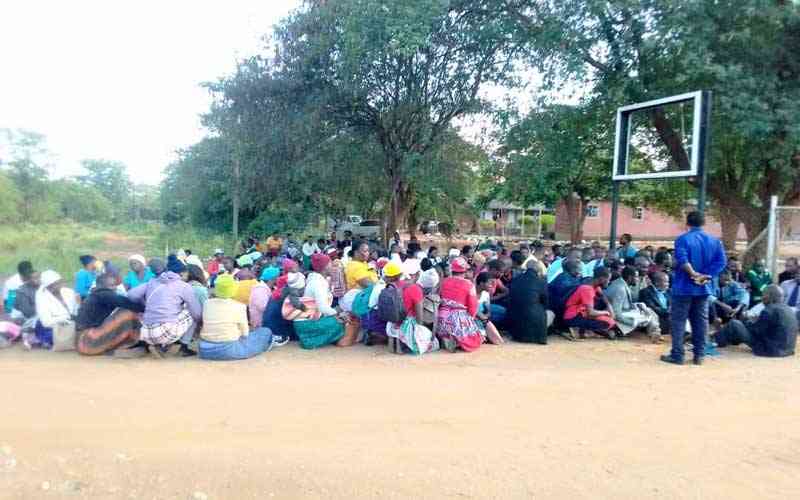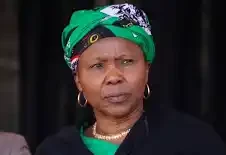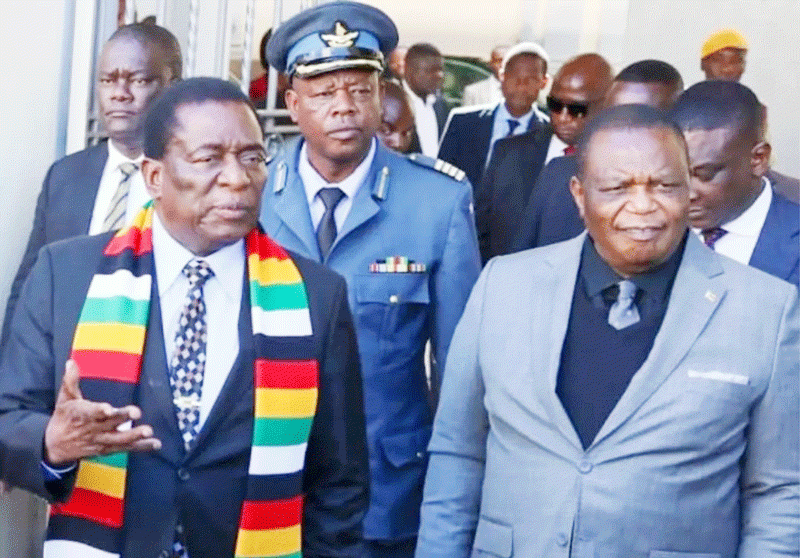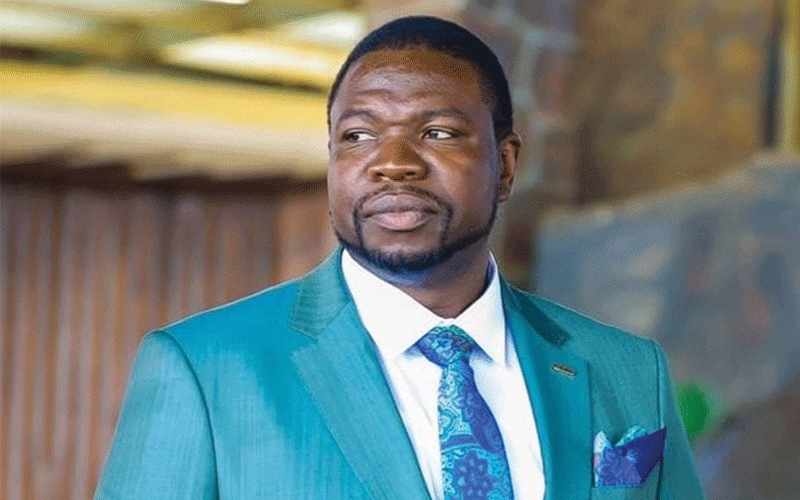
President Emmerson Mnangagwa has come under fire for shielding Zanu PF bigwigs and some of his closest allies that were exposed by land audits for grabbing commercial farms while targeting vulnerable communities.
Mnangagwa’s regime recently embarked on a blitz targeting suspected “illegal” settlers occupying state land.
The exercise has left many homeless while some of the victims have been dragged to court facing charges of occupying state land without authority.
The evictions, which have targeted ordinary citizens leaving out the land barons mostly linked to Zanu PF, were suspended following a public outcry.
A report by Justice Tendai Uchena on ‘Commission of Inquiry into the Matter of the Sale of State and Council Land in and around urban areas since 2005 said land barons were politically connected persons.
The report said there was ‘abuse of political office in the allocation and appropriation of urban state land and ‘use of names of top ruling party leadership to exert undue influence on government institutions and processes.’
Uchena’s commission unearthed widespread corruption, illegal land sales, and missing funds in an exercise that left thousands of Zimbabweans without proper housing and basic services.
It recommended that the government must investigate corruption in the allocation of land and suspend all subdivision permits for acquired urban state land.
- Corruption Watch: Get scared, 2023 is coming
- Corruption Watch: Get scared, 2023 is coming
- Letters: Ensuring Africa’s food security through availability of quality seeds
- Is military's involvement in politics compatible with democracy?
Keep Reading
Other recommendations were auditing the activities of officials involved in land management since 2005 and conducting lifestyle audits on allegedly corrupt officials.
Observers who spoke to The Standard said the evictions have exposed the hypocrisy of the government as it targeting vulnerable communities while protecting the interests of the elite.
Centre for Natural Resource Governance director, Farai Maguwu, said untouchable and powerful individuals as well as elites have constructed houses at illegal places, some on top of graveyards in urban areas specifically in Harare’s Hopley suburb.
“Land in Zimbabwe is a political weapon in which those in power use it to gain control and also to reward functionalists around them,” Maguwu said.
“Land is something that has been manipulated for years by the ruling party.
“They use land to control people and it’s very sad that they even set up these commissions of inquiries whose recommendations and reports they don’t implement.”
Maguwu cited the Utete Land Commission audit, whose recommendations were shelved, and the Uchena Commission of Inquiry, whose findings on land grabs remain unaddressed.
“They will spend millions of dollars on these useless commissions which produce very good reports but never used,” he said.
Transparency International Zimbabwe’s executive director Tafadzwa Chikumbu said there was rampant corruption in in the allocation of land
“We identified that the culprits are either those who work for local authorities, land barons, officials in the ministry of land and other politically connected people across the country,” Chikumbu said.
“Our findings also revealed that it’s not just individuals that are defrauding the unsuspecting public who are looking for residential stands but an organised syndicate that involves either people within the land sector and people in the justice sector as well.
“They pay bribes to evade arrest or prosecution.”
Chikumbu said there was a need for the government to investigate the irregular distribution of land.
“When these evictions are taking place, they only focus on the individual on the land, they don’t invest in identifying how the individual acquired the land and who benefitted from the sale of the land,” he said.
“They just focus on evicting people.”
Heal Zimbabwe Trust information and advocacy officer Tapiwashe Chiriga criticised the politicisation of land distribution.
“The Communal Lands Act is an outdated colonial relic that must be repealed and a new law that recognises property rights and humane ways of resolving land issues must be enacted by Parliament,” Chiriga said.
Zanu PF director of information and publicity Farai Marapira, however, said the government was committed to addressing "illegal settlements".
“The Uchena report contains recommendations which the government and the party would take into consideration and work upon,” Marapira said.
“However what people need to understand is that there is no way of tolerating and allowing illegal settlements to continue.
“It is not an easy decision to make but we need to have a professionally set up system of stand division.”
The government has been forced to halt the evictions of settlers across the country following an outcry from rights groups, which said the exercise was illegal.
Several villagers from Masvingo were last week acquitted by the courts after they were charged for alleged settling on pieces of land illegally.
Zimbabwe embarked on a controversial land reform programme at the turn of the millennium where over 4 000 local white commercial farmers were forced to vacate their farms to make way for landless blacks.
The programme was marred by allegations that Zanu PF and government officials used their positions to amass vast tracts of land while muscling out deserving beneficiaries, who are still without land.









